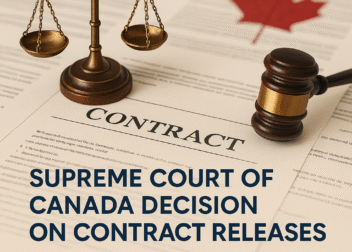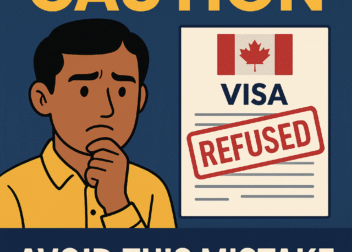Intra-Company Transfers (ICT) to Canada: A 2026 Legal Overview for Multinational Corporations
For international corporations considering expansion into the North American market, Canada remains a significant jurisdiction for growth. However, the regulatory framework governing corporate immigration has evolved. The “Intra-Company Transfer” (ICT) program involves specific eligibility criteria that are rigorously adjudicated by Immigration, Refugees and Citizenship Canada (IRCC). At Ahlawat Law Professional Corporation, we provide legal counsel to corporate executives and general counsel regarding Canadian immigration compliance. This article outlines the current legal standards for the ICT program as of January 2026, the specific eligibility tests, and the regulatory requirements that multinational entities must meet. What is the Intra-Company Transfer (ICT)? The Intra-Company Transfer is a federal immigration stream under the International Mobility Program (IMP). It is designed to facilitate the temporary transfer of qualified personnel from a foreign company to its related Canadian entity. The legal basis for this program is Regulation 205(a) of the Immigration and Refugee Protection Regulations (IRPR). This regulation permits officers to grant work permits without a Labour Market Impact Assessment (LMIA) where it is demonstrated that the transfer will provide a “significant economic, social, or cultural benefit” to Canada [1]. Eligibility Criteria: The Two-Part Assessment Eligibility is determined by an assessment of both the corporate structure and the individual nominee. 1. The Corporate Test: “Qualifying Relationship” A “qualifying relationship” must exist between the foreign enterprise and the Canadian enterprise. This relationship must be established at the time of the application and persist throughout the duration of the transfer. Before this can be tested the Company must demonstrate to be a Multi National Corporation i.e. it should have active operations in at-least two other countries. Simply incorporating in another jurisdiction doesn’t help, but there should be an organic, actively running business outside the home country before applying for ICT to Canada for establishing and running a Canadian Entity. Recognized corporate structures include: Requirement for Active Operations: Both the foreign and Canadian entities must be “doing business.” This is defined legally as the regular, systematic, and continuous provision of goods or services. The mere presence of an agent or office in Canada is generally insufficient [2]. 2. The Employee Test: Function & Tenure The individual being transferred must generally: Category Description Executive Directs the management of the organization or a major component; establishes goals and policies; exercises wide latitude in decision-making. Senior Manager Manages the organization, a department, subdivision, or function; supervises and controls the work of other managers or supervisors. Specialized Knowledge Possesses both “proprietary knowledge” and “advanced expertise” regarding the company’s product, service, research, equipment, techniques, or management. The Application Process The procedural requirements generally involve the following stages: Phase 1: Corporate Establishment Before an immigration application is filed, the Canadian entity typically must be legally established. This includes incorporation (Federal or Provincial), obtaining a Business Number (BN) from the Canada Revenue Agency, and securing physical commercial premises. Phase 2: Employer Compliance The Canadian entity must submit an Offer of Employment via the IRCC Employer Portal and pay the Employer Compliance Fee. This submission details the business activities, job duties, and wage compliance. Phase 3: Work Permit Application The foreign national applies for the work permit (typically form IMM 1295). The applicant bears the burden of proof to demonstrate the qualifying relationship, their tenure, and the economic benefit of their transfer. Regulatory Considerations for 2026 Policy guidelines and enforcement priorities change. Applicants and employers should be aware of the following: How We Assist Navigating cross-border business expansion requires adherence to strict legal protocols. Ahlawat Law Professional Corporation assists multinational clients by: Contact us to schedule a consultation regarding your business immigration needs. Endnotes & Official Sources: [1] Intra-company transferees [R205(a)] – General Overview: [2] Qualifying Relationship & Business Activity: [3] Specialized Knowledge Defined: Disclaimer: The information provided in this article is for general informational purposes only and does not constitute legal advice. Immigration laws and policies are subject to change. Readers should consult with a qualified lawyer for advice specific to their situation.










